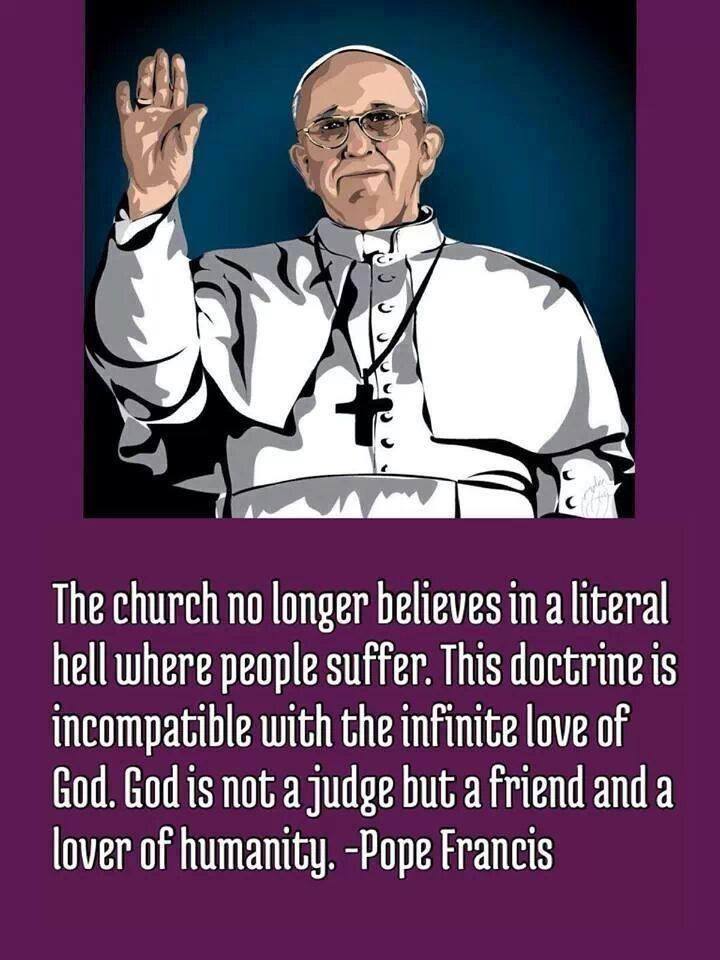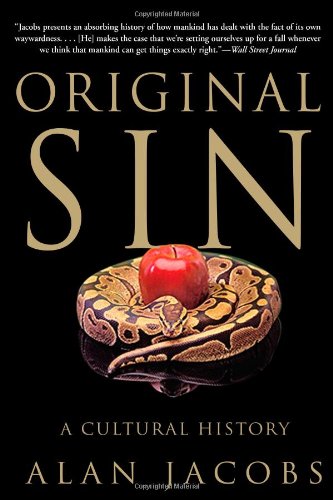
The biggest surprise of On Heaven and on Earth, the book-length dialogue between Cardinal Bergoglio and Rabbi Skorka, came pretty early in the book. The second chapter is called “On the Devil.” In it Bergoglio says the following:
Jesus defines [Satan] as the Father of Lies, and the book of Wisdom says that sin entered the world through the Devil’s envy of God’s masterpiece. His fruits are always destruction: division, hate, and slander. And in my personal experience, I feel him every time that I am tempted to do something that is not what God wants for me. I believe that the Devil exists. Maybe his greatest achievement in these times has been to make us believe that he does not exist, and that all can be fixed on a purely human level. Man’s life on Earth is warfare; Job says it means that people are constantly put to the test; that is to say, a test to overcome a situation and overcome oneself.
You’d think Skorka would agree, because religion has always been about the priesthood scaring the people into servility with threats of the the devil and hellfire. Right? Wrong!
The notion of the devil was a late addition to Jewish theology, perhaps around the 4th or 3rd century BC, perhaps through Persian sources. Nobody can be certain. What’s certain is that it didn’t take hold in all of the many schools of Judaism.

In the currents of Judaism where it took hold the notion of a personalized evil led to a gradual reinterpretation of earlier biblical sources. This was most notable in what the vast majority of Christians take to be the story of the Fall in Genesis.
[As a matter of fact, the Fall was actually a much later, mostly Augustinian, addition. See: the standard account in Original Sin: A Cultural History by Alan Jacobs.]
Christianity further elaborated upon these sources and reinterpretations in the New Testament. Let’s not forget that early Christians were Jews (Jean Danielou’s The Theology of Jewish Christianity is still the place to go for the essential background) and Rabbinical Judaism would only become the definitive form of Judaism only after the destruction of the Temple in 70 AD.
Therefore when Rabbi Skorka says, a little flabbergasted by talk of a Devil, that there is a “wide variety of opinions on this topic in Judaism,” he is both right and wrong. He is right to say rabbinical Judaism does not tend toward a personalized view of evil. He is technically wrong to exclude Christianity from the set of “Judaism,” because it has both as little and as much in common with Second Temple Judaism as Rabbinical Judaism does–and forget, like everyone else, First Temple Judaism.
Back to Francis. His first sermon, preached in the Sistine chapel on 14 May 2013, started, as you might suspect by now, with a striking reference to the devil:
Third, professing: we can walk as much we want, we can build many things, but if we do not confess Jesus Christ, nothing will avail. We will become a compassionate NGO, but not the Church, the Bride of Christ. When one does not walk, one stalls. When one does not built on solid rocks, what happens? What happens is what happens to children on the beach when they make sandcastles: everything collapses, it is without consistency. When one does not profess Jesus Christ – I recall the phrase of Leon Bloy – “Whoever does not pray to God, prays to the devil.” When one does not profess Jesus Christ, one professes the worldliness of the devil.
If you haven’t noticed, he hasn’t stopped since.
After all this you might be scratching your head about the lead image for this post. It comes from rumors about Vatican III and the abolishing of the Devil by Francis that seem to originate on this comedy site and were picked up by some gullible media outlets. Nothing to it.
In fine, there is no better summary of the worldliness pope Francis talks about than, “Please allow me to introduce myself I’m a man of wealth and taste I’ve been around…” (especially since this song pretty much started the Altamont concert riots).
http://www.youtube.com/watch?v=vBecM3CQVD8











